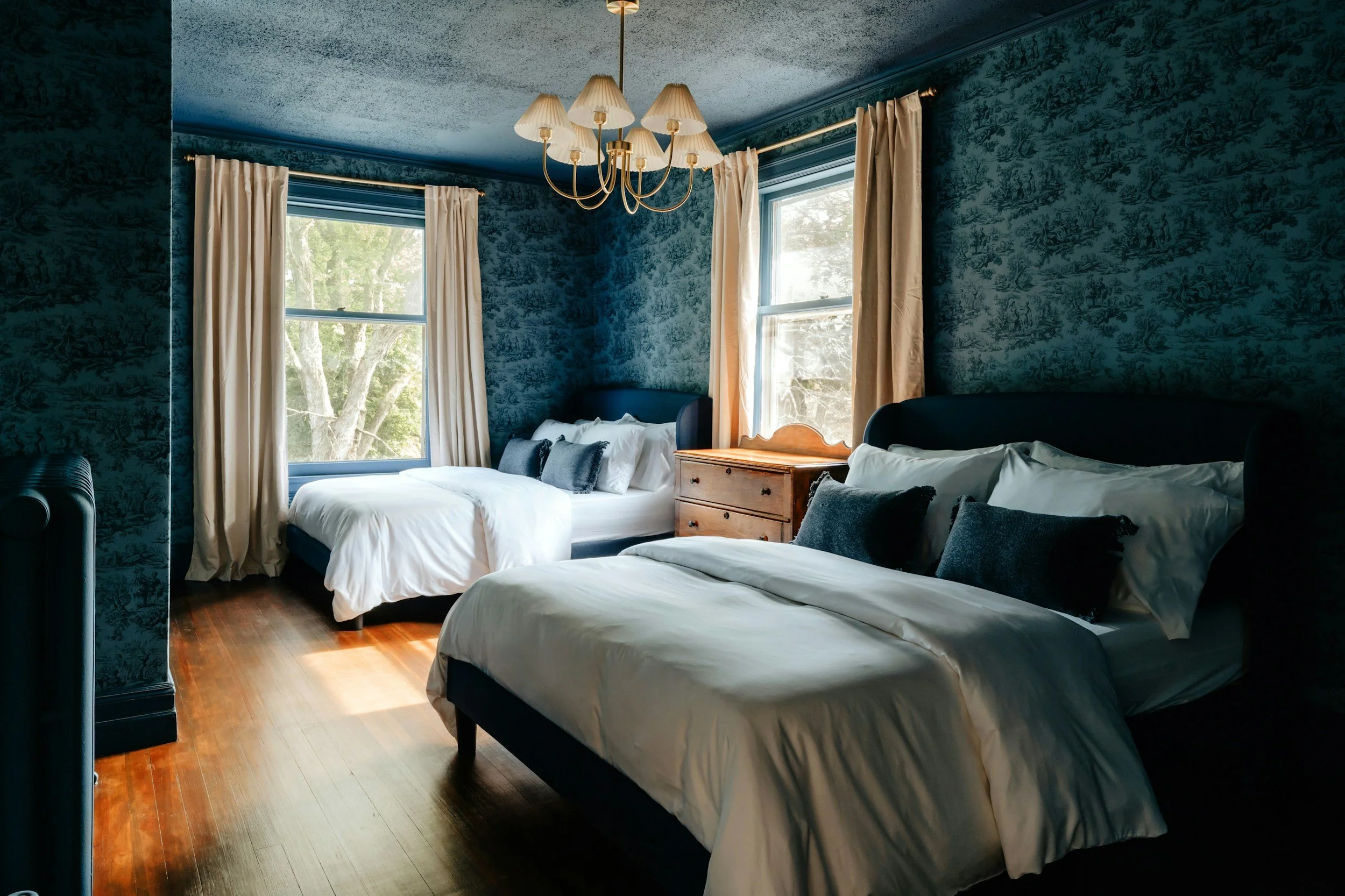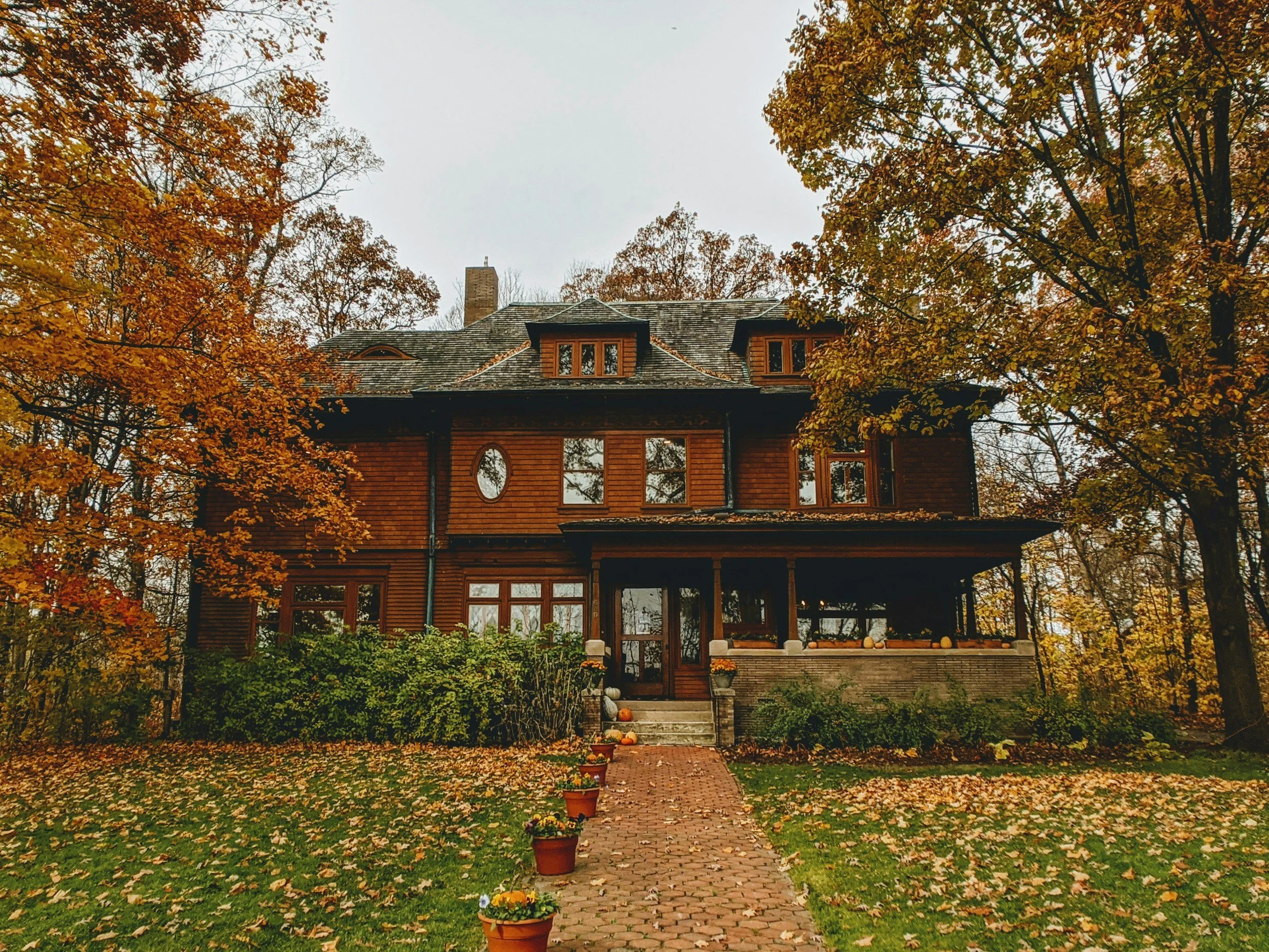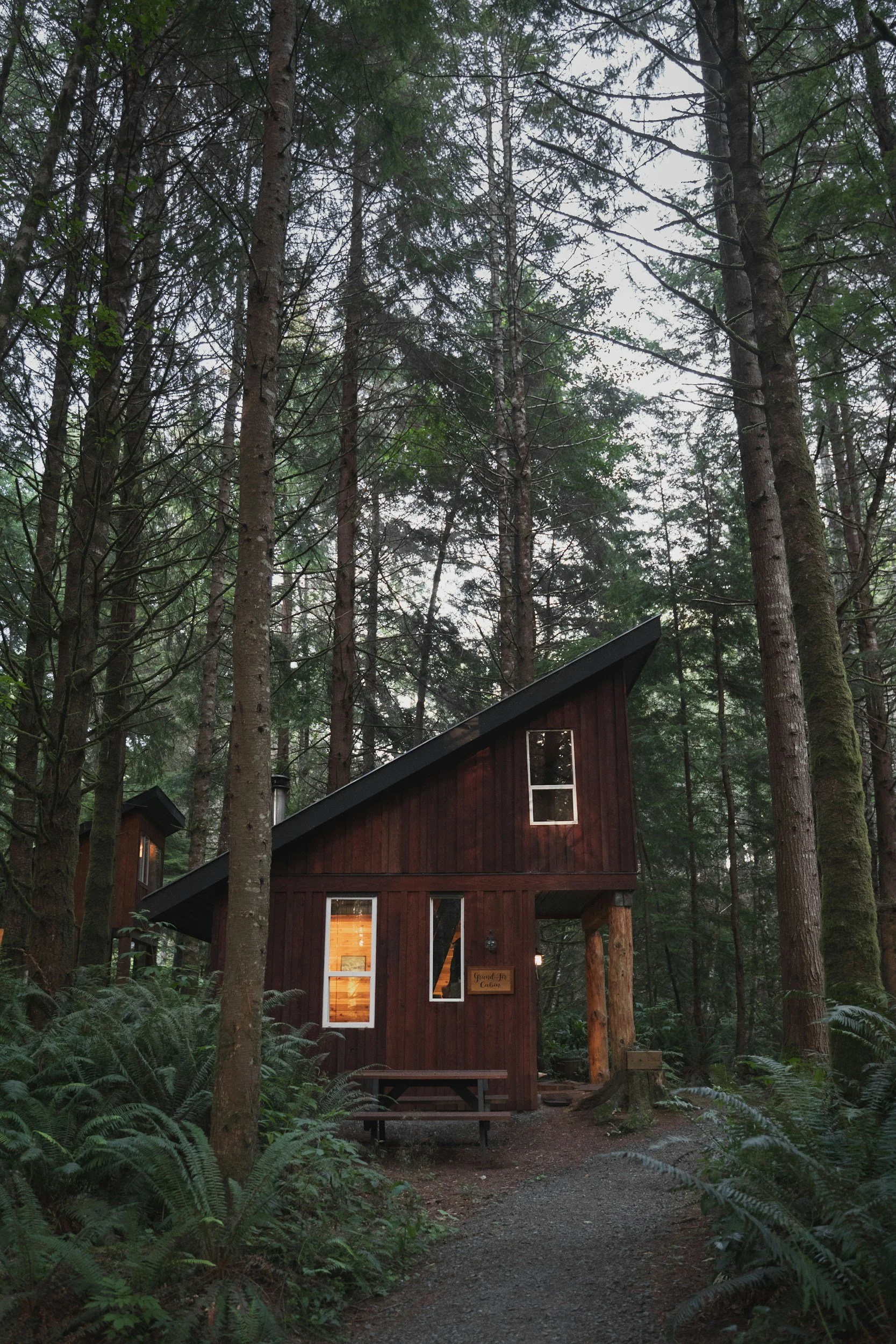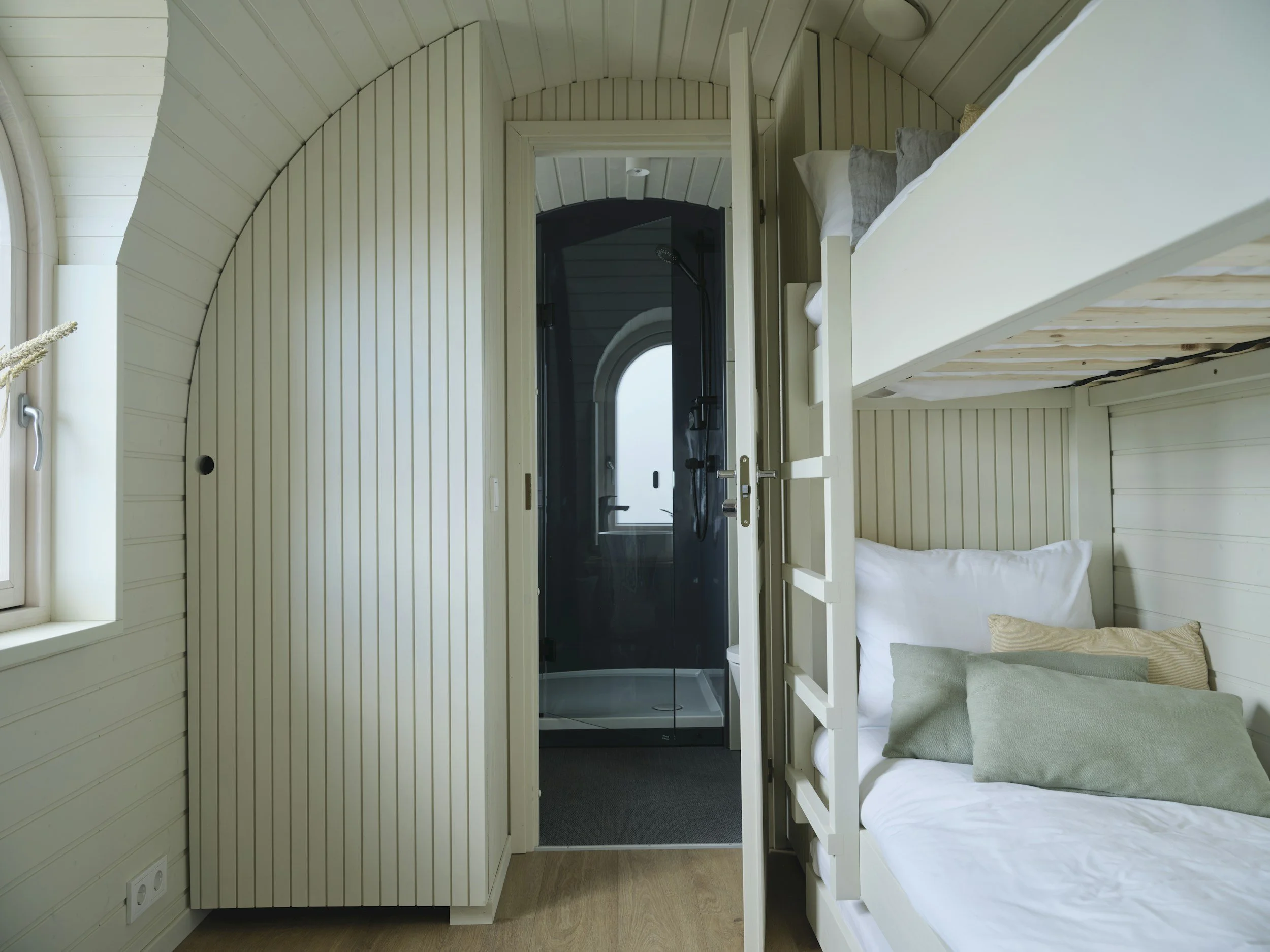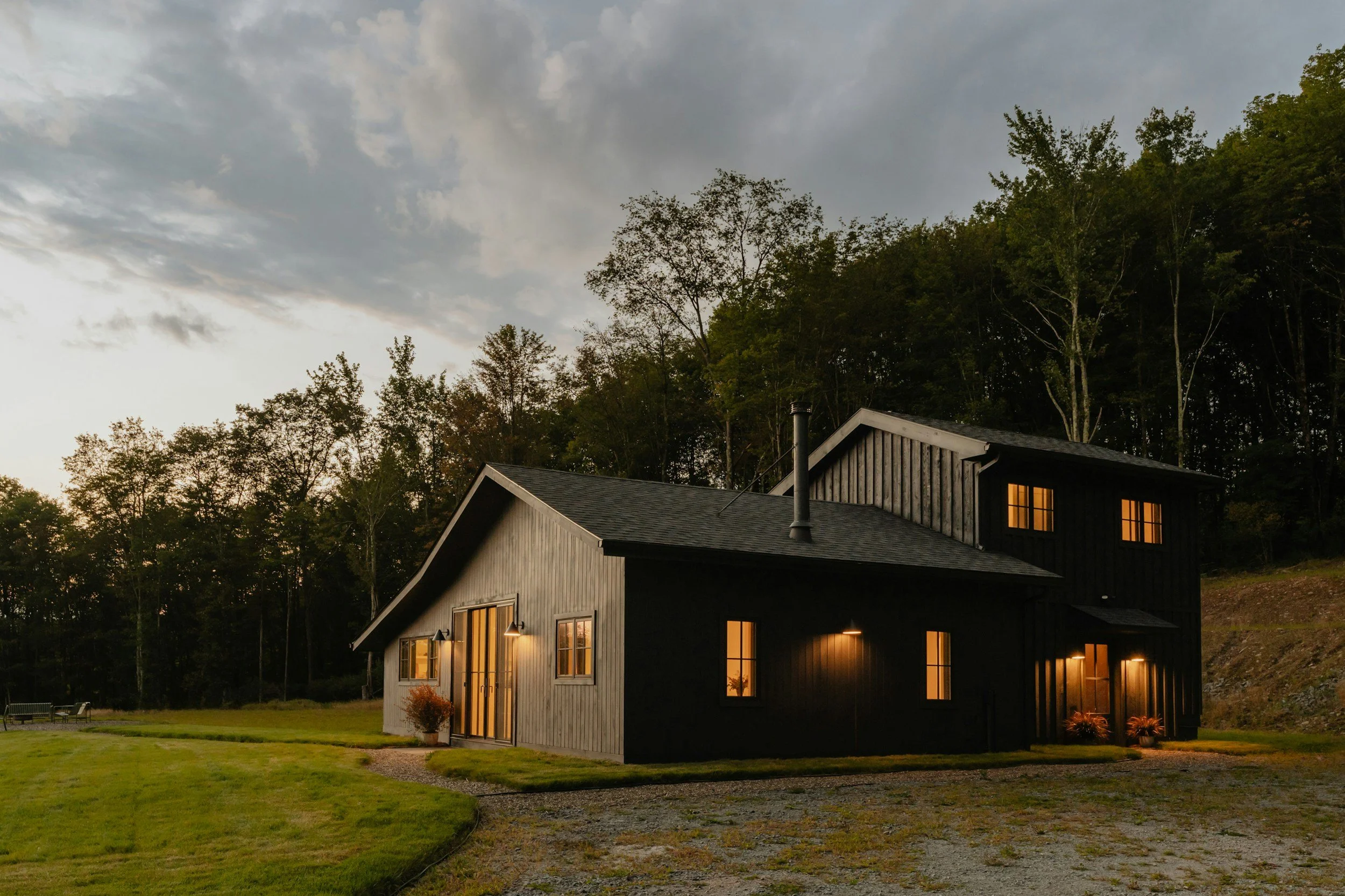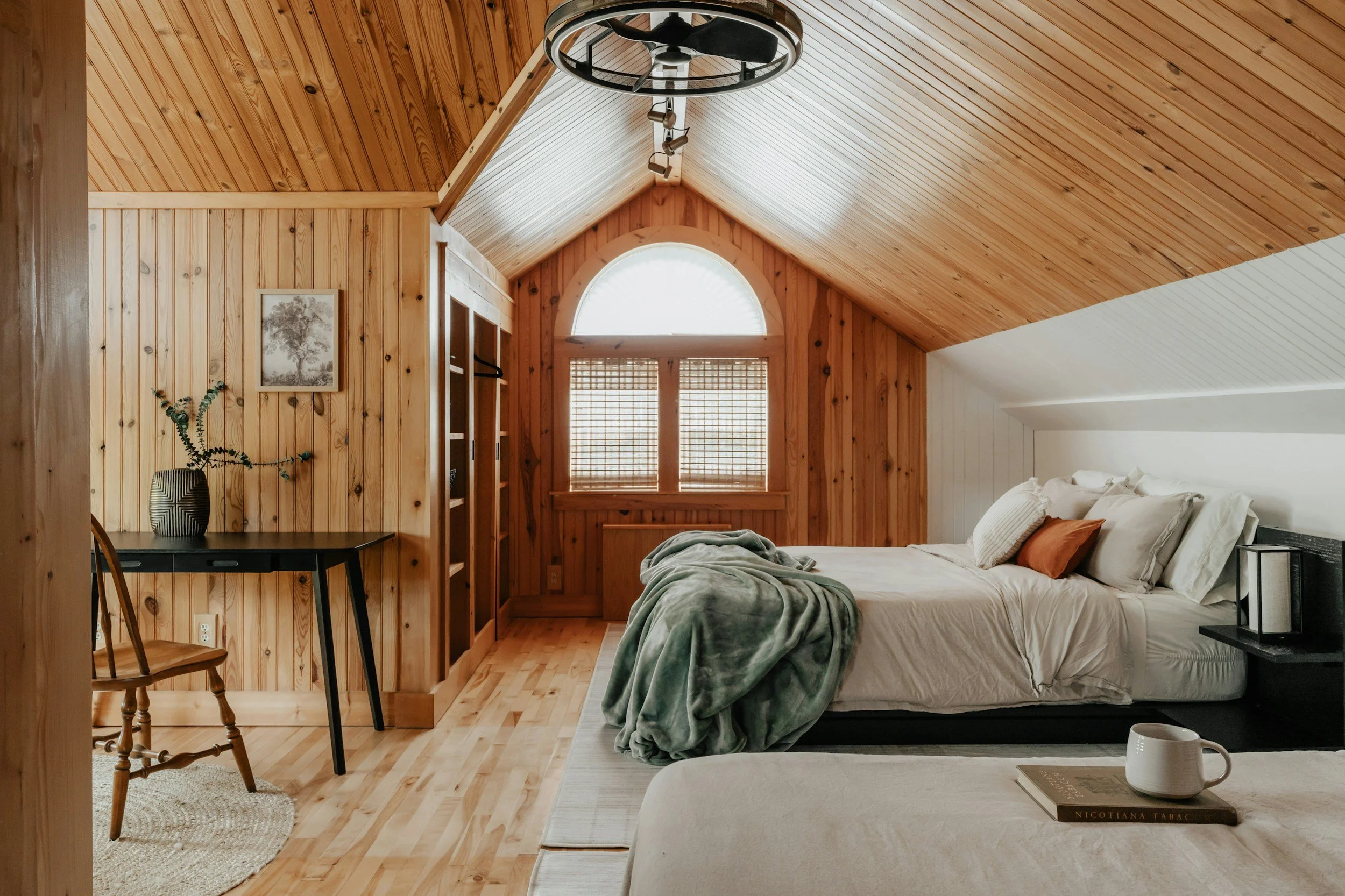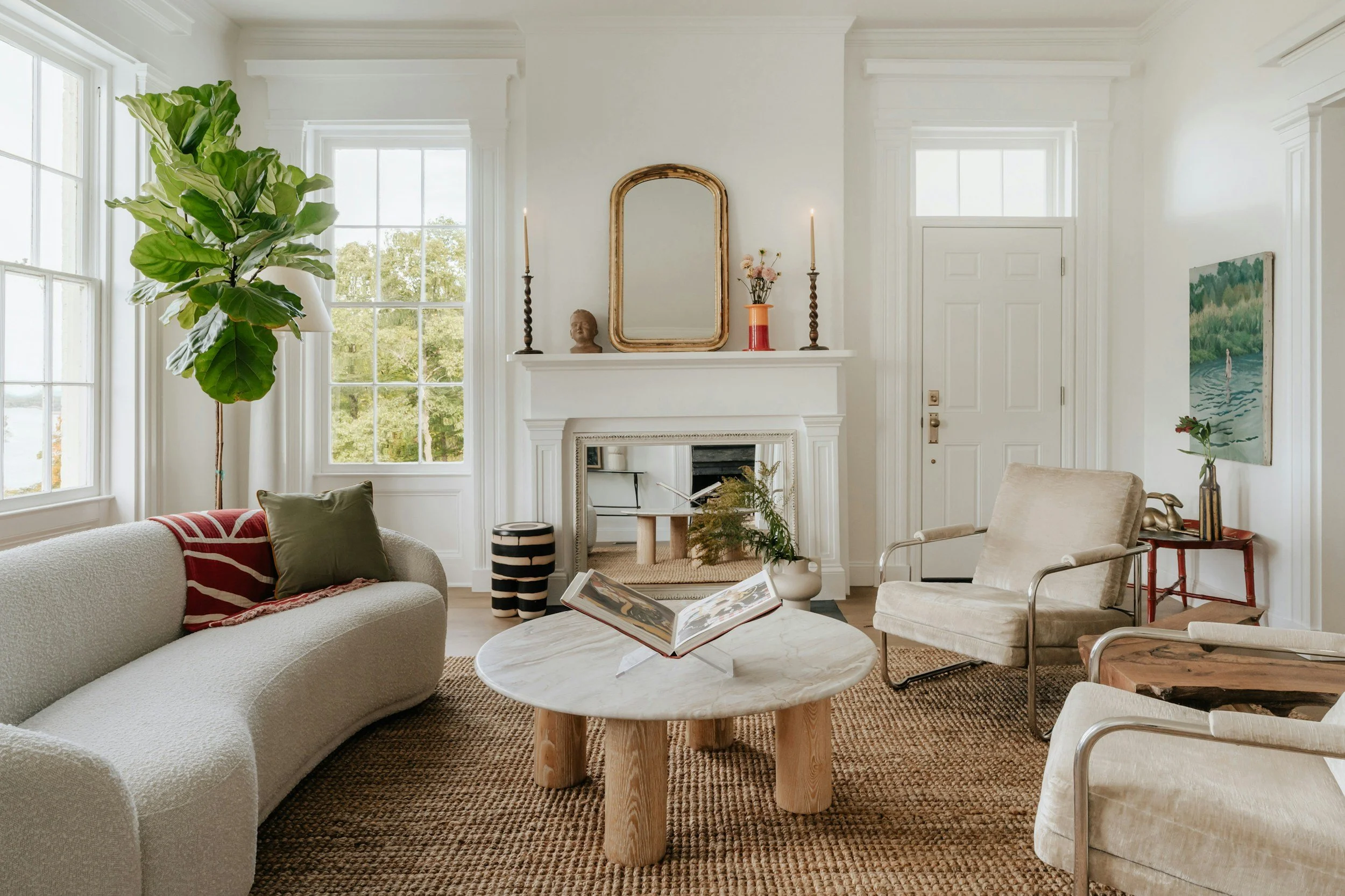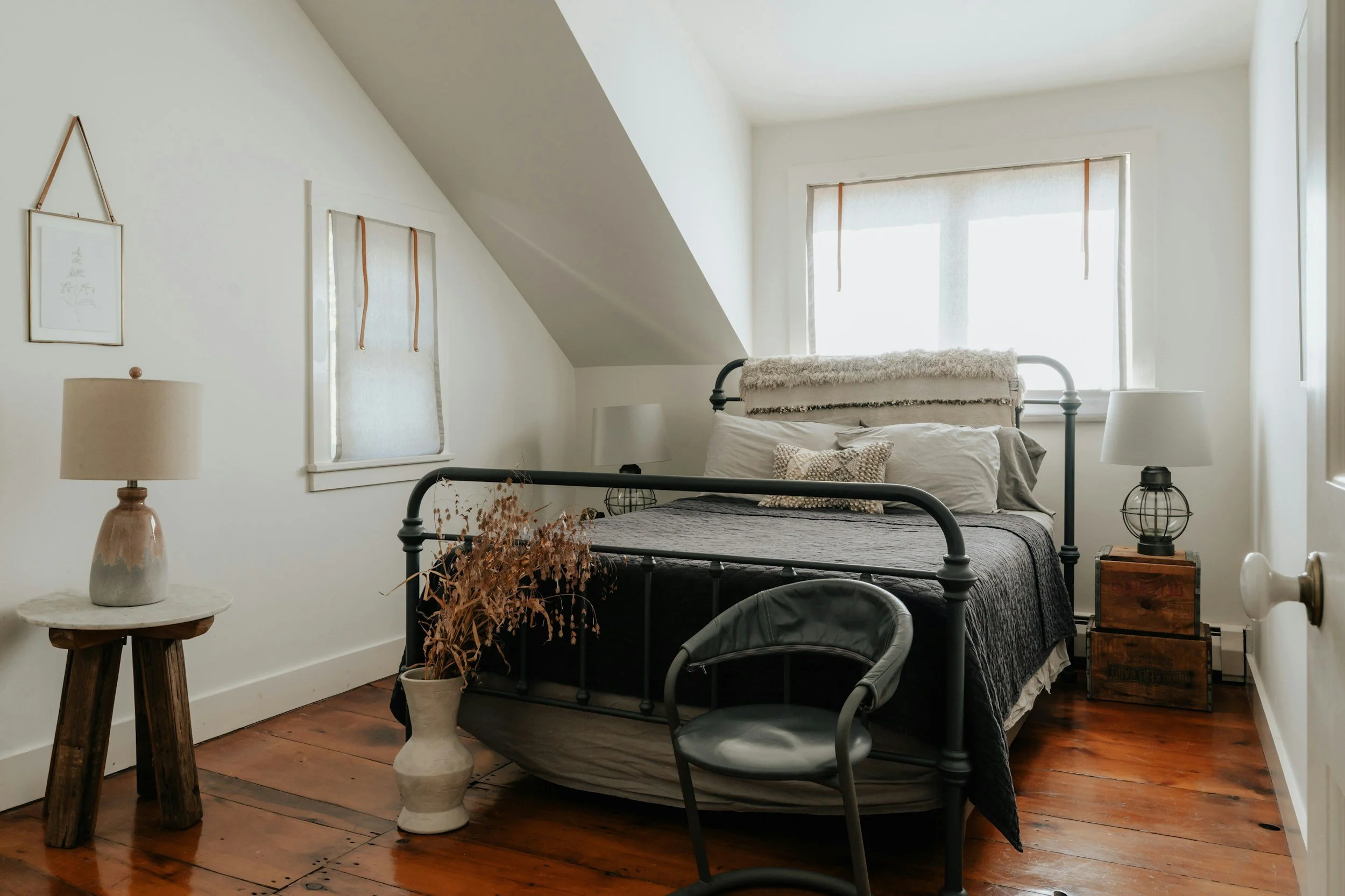Buying vs. Renting in Asheville: What Makes the Most Financial Sense in 2025
As the Asheville real estate market continues to evolve, many locals and newcomers alike face a critical question: Is buying a home really better than renting in 2025?
With home prices stabilizing after several years of rapid appreciation, interest rates fluctuating, and a steady influx of people moving to Western North Carolina, making the right housing decision requires a careful analysis of your personal goals, financial situation, and lifestyle preferences.
Whether you’re an Asheville renter tired of escalating monthly payments, a newcomer hoping to put down roots in the Blue Ridge Mountains, or someone relocating from a major metropolitan area, understanding the local market dynamics is essential for making a smart financial choice.
Current Asheville Real Estate Market: The Numbers You Need to Know
Before diving into the pros and cons of buying versus renting, let’s examine the current Asheville real estate landscape and what these numbers mean for your decision.
Home Buying Costs in Asheville (2025)
Median home price in Asheville: ~$520,000
Typical monthly mortgage payment (with 20% down at 7% interest): ~$2,700–$3,100
Average down payment needed: $104,000 (20%) or $26,000 (5% down)
Estimated closing costs: $10,400–$26,000 (2-5% of home price)
Average property taxes: ~$2,600 annually
Homeowners insurance: ~$1,200–$1,800 annually
Rental Market in Asheville (2025)
Median monthly rent for a 2-bedroom apartment: ~$1,800–$2,200
Median monthly rent for a 3-bedroom house: ~$2,400–$2,800
Average security deposit: 1-2 months’ rent
Typical annual rent increases: 5-10%
Pet deposits/fees: $200-$500 plus monthly pet rent
What These Numbers Reveal
The gap between renting and owning in Asheville has narrowed significantly. You might pay only $500-$900 more monthly to own versus rent, but that difference comes with the opportunity to build equity and lock in fixed housing costs.
However, the substantial upfront costs of buying—potentially $36,000-$130,000 in down payment and closing costs—represent a significant barrier for many prospective homeowners.
The Complete Case for Buying in Asheville
Purchasing a home in Asheville offers several compelling financial and lifestyle advantages, especially for those planning to stay in the area long-term.
1. Build Substantial Equity Over Time
Every mortgage payment reduces your loan balance while potentially building wealth through home appreciation.
Why this matters in Asheville specifically:
Asheville home values have appreciated approximately 5% annually over the past decade
Even modest 3-4% annual appreciation on a $520,000 home equals ~$60,000-$80,000 in equity after 3-4 years
Unlike rent payments, mortgage payments contribute to your net worth
Equity can be accessed through refinancing or home equity loans for major expenses
Real-world example: A homeowner who purchased a $400,000 Asheville home in 2020 would likely see their property valued at $500,000+ today, representing $100,000+ in equity growth plus principal paydown.
2. Lock In Fixed Housing Costs
While rent increases are virtually guaranteed, fixed-rate mortgages provide payment stability for decades.
Asheville rental market trends:
Landlords typically increase rents 5-10% annually
A $2,000 monthly rent could reach $2,600+ within 5 years with modest increases
Mortgage principal and interest payments remain constant for the loan term
Only property taxes and insurance fluctuate, usually less dramatically than rent hikes
Long-term savings calculation: Over 10 years, rent increases could add $300-$600+ to monthly housing costs, while a fixed mortgage payment remains unchanged.
3. Significant Tax Advantages
Homeownership provides several tax benefits that renters cannot access:
Federal tax deductions:
Mortgage interest deduction (up to $750,000 in loan amount)
Property tax deduction (up to $10,000 annually)
Private mortgage insurance (PMI) may be deductible
North Carolina specific benefits:
Homestead exemption reduces property tax burden
No state tax on mortgage interest deduction benefits
Estimated annual savings: Depending on income level, these deductions could save $2,000-$8,000+ annually in taxes.
4. Complete Control and Personalization
Ownership provides freedom to modify and improve your living space according to your preferences and needs.
Financial benefits of customization:
Kitchen renovations typically return 60-80% of investment
Bathroom updates often recoup 50-70% of costs
Landscaping and curb appeal improvements add immediate value
Energy-efficient upgrades reduce utility costs and may qualify for tax credits
Lifestyle benefits:
Paint, renovate, and decorate without landlord approval
Install gardens, fencing, or outdoor living spaces
Make accessibility modifications as needed
Create dedicated workspace for remote work
5. Hedge Against Inflation
Real estate historically serves as an effective inflation hedge, protecting your wealth over time.
How this works:
As inflation rises, property values typically increase
Fixed-rate mortgages become easier to pay with inflated dollars
Rental income potential (if you later rent out rooms or the entire property)
Building materials and labor costs increase, making existing homes more valuable
The Complete Case for Renting in Asheville
Despite the advantages of homeownership, renting remains the smart choice for many Asheville residents in specific circumstances.
1. Dramatically Lower Upfront Costs
Renting requires significantly less cash to get started, preserving capital for other investments or expenses.
Typical renting costs:
First month’s rent: $1,800-$2,800
Security deposit: $1,800-$5,600
Application fees: $50-$200
Total upfront: $3,650-$8,600
Compare to buying costs:
Down payment: $26,000-$104,000
Closing costs: $10,400-$26,000
Moving expenses: $1,000-$3,000
Immediate repairs/improvements: $2,000-$10,000
Total upfront: $39,400-$143,000
Investment opportunity: The $30,000-$135,000 difference could be invested in stocks, bonds, or business ventures potentially yielding higher returns than real estate appreciation.
2. Maximum Flexibility and Mobility
Renting provides unmatched flexibility for lifestyle changes, career moves, or life transitions.
Perfect for:
Remote workers who may relocate for better opportunities
Seasonal employees in Asheville’s tourism industry
Young professionals exploring different neighborhoods
People in transitional life phases (recent graduates, career changers, relationship changes)
Those wanting to test different areas before committing to purchase
Financial flexibility:
Easier to downsize or upgrade based on changing income
No risk of being underwater on a mortgage during market downturns
Ability to relocate quickly for better job opportunities
No responsibility for major market timing decisions
3. Predictable Monthly Expenses
Renting provides more predictable monthly housing costs without surprise major expenses.
Landlord responsibilities typically include:
HVAC system repairs and replacement ($3,000-$8,000 value)
Roof repairs and replacement ($8,000-$20,000 value)
Plumbing and electrical issues
Appliance repairs and replacement
Exterior maintenance and landscaping
Property tax increases don’t directly affect renters
Budgeting advantages:
Easier to calculate exact monthly housing costs
No need to maintain emergency fund for home repairs
Utility costs often more predictable in apartments
No property tax or homeowners insurance to budget for
4. Access to Amenities Without Ownership Costs
Many Asheville rental properties offer amenities that would be expensive to install and maintain as a homeowner.
Common rental amenities:
Swimming pools and fitness centers
Covered parking or garages
Landscaped grounds and gardens
Security systems and gated access
Trash and recycling services
Snow removal and exterior maintenance
5. Protection from Market Downturns
Renters avoid the financial risk of property value declines and can benefit from market corrections.
Market protection benefits:
No risk of owing more than the home is worth
Ability to benefit from falling rents during economic downturns
No exposure to property tax increases
Freedom to relocate to markets with better opportunities
Advanced Factors to Consider in Your Decision
Local Market Dynamics Specific to Asheville
Tourism and Short-term Rental Impact:
Asheville’s popularity as a tourist destination affects both rental and purchase markets. Many property owners convert long-term rentals to Airbnbs, reducing rental supply but potentially increasing property values.
Climate Migration Trends:
As climate change drives migration patterns, Asheville’s temperate climate and lower natural disaster risk make it increasingly attractive, potentially supporting long-term property value growth.
Economic Diversification:
Asheville’s economy increasingly depends on healthcare, technology, and creative industries beyond tourism, providing more stable employment and housing demand.
Detailed Financial Break-Even Analysis
Time to break even on buying vs. renting:
Considering all costs (down payment, closing costs, maintenance, taxes, insurance) versus rent and investment returns, most buyers break even after 4-7 years in the current Asheville market.
Factors affecting break-even timeline:
Down payment amount (larger down payments extend break-even period)
Home appreciation rate
Rent increase rate
Investment returns on alternative investments
Tax situation and deduction benefits
Maintenance and repair costs
Lifestyle Considerations Beyond Finances
Community Integration:
Homeownership often leads to deeper community involvement, neighborhood investment, and social connections that provide non-financial benefits.
Psychological Benefits:
Many people experience reduced stress and increased life satisfaction from homeownership, though others prefer the freedom and simplicity of renting.
Family Planning:
Consider how potential family changes might affect your housing needs and whether renting or buying better accommodates those changes.
Comprehensive FAQ: Asheville Renting vs. Buying
Market and Investment Questions
Q: Will Asheville home prices continue rising in 2025 and beyond?
A: Multiple indicators suggest continued moderate growth. Asheville’s appeal as a climate refuge, retirement destination, and remote work hub supports long-term demand. However, prices are unlikely to repeat the dramatic increases of 2020-2022.
Q: Should I wait for interest rates to drop before buying?
A: Interest rate timing is unpredictable. While waiting might save on borrowing costs, you could miss out on equity building and face higher home prices. Consider your overall financial readiness rather than trying to time the market.
Q: How do Asheville property taxes compare to other North Carolina cities?
A: Buncombe County property tax rates are moderate for North Carolina at approximately 0.50% of assessed value. However, regular reassessments can increase tax bills as property values rise.
Q: What’s the rental vacancy rate in Asheville?
A: Asheville typically maintains a low rental vacancy rate (3-5%), indicating strong rental demand but limited options for renters. This supports both rental price stability and property investment potential.
Financial and Qualification Questions
Q: What credit score do I need to buy in Asheville?
A: Conventional loans typically require 620+ credit scores, but FHA loans may accept scores as low as 580 with higher down payments. Local lenders often have programs for buyers with lower scores.
Q: Are there first-time homebuyer programs in Asheville?
A: Yes, several options exist:
NC Home Advantage Mortgage provides down payment assistance
USDA Rural Development loans for eligible areas around Asheville
VA loans for qualifying veterans
Local nonprofit down payment assistance programs
Q: How much should I save beyond the down payment?
A: Plan for 2-5% of home price in closing costs plus 3-6 months of mortgage payments in emergency reserves for repairs and maintenance.
Q: Can I rent out part of my home to help with mortgage payments?
A: Many Asheville homeowners successfully rent out rooms or basement apartments. Ensure compliance with local zoning laws and consider the impact on your homeowners insurance and taxes.
Location and Lifestyle Questions
Q: Which Asheville neighborhoods are best for first-time buyers?
A: Consider areas like Arden, Fletcher, and parts of South Asheville for better value, or neighborhoods like Montford and Grove Park for walkability and character at higher prices.
Q: How does buying vs. renting affect my ability to enjoy Asheville’s outdoor recreation?
A: Both can work well. Homeowners might prefer proximity to trails and outdoor activities, while renters might value flexibility to live in different areas seasonally.
Q: Should I consider condos vs. single-family homes in Asheville?
A: Condos typically offer lower maintenance responsibilities and better affordability but include HOA fees and less privacy. Single-family homes provide more space and control but require more maintenance and higher costs.
Making Your Decision: A Step-by-Step Approach
Step 1: Assess Your Financial Readiness
Calculate your total financial picture:
Monthly income and debt obligations
Available savings for down payment and reserves
Credit score and loan qualification potential
Job stability and income growth prospects
Use the 28/36 rule:
Housing costs shouldn’t exceed 28% of gross monthly income
Total debt payments shouldn’t exceed 36% of gross monthly income
Step 2: Define Your Timeline and Goals
Short-term considerations (1-3 years):
Job security and potential relocations
Relationship changes or family planning
Major life transitions or career changes
Long-term considerations (5+ years):
Retirement planning and wealth building goals
Desire for community investment and stability
Legacy and estate planning objectives
Step 3: Analyze Your Lifestyle Preferences
Homeownership suits you if:
You enjoy home improvement and customization projects
You prefer stability and routine in your living situation
You want to build wealth through real estate
You plan to stay in Asheville long-term
Renting suits you if:
You value flexibility and minimal responsibility
You prefer to invest money in other assets
You’re uncertain about long-term location plans
You want predictable monthly expenses
Step 4: Run the Numbers for Your Specific Situation
Create a personalized comparison:
Calculate total monthly costs for both renting and buying
Factor in tax benefits, appreciation potential, and opportunity costs
Consider your specific income, savings, and investment goals
Account for Asheville-specific market conditions
Step 5: Consider Professional Guidance
When to consult experts:
Real estate agents for market insights and property searches
Mortgage lenders for qualification and loan options
Financial advisors for investment and tax planning
Tax professionals for deduction optimization
Ready to Make Your Move in Asheville?
Whether you’re leaning toward buying your first home or finding the perfect rental for your next chapter, the key is making an informed decision based on your unique financial situation, lifestyle preferences, and long-term goals.
The Asheville real estate market offers opportunities for both renters and buyers, but success requires understanding local market dynamics, realistic financial planning, and clear goal-setting.
As a licensed realtor and interior designer who’s helped countless clients navigate Asheville’s unique market, I’m here to provide personalized guidance for your specific situation. From analyzing neighborhoods and properties to understanding financing options and market timing, I can help you make the choice that best serves your financial and lifestyle goals.
Ready to explore your options? Let’s schedule a free consultation to review your situation, discuss current market opportunities, and create a personalized plan for your Asheville housing journey.
Whether you’re ready to put down roots with a home purchase or need guidance finding the perfect rental property, I’m here to help you make the smartest decision for your future in Western North Carolina.
Book your free connection call today to get started with expert, personalized guidance for your Asheville real estate journey.
If you are looking to transform your space, interested in Asheville real estate, or just want to say hi, I'd love to connect!
Thinking about buying or selling near Asheville NC?
READ MORE
FOLLOW ON INSTAGRAM
Book a Call


